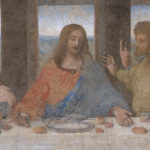
Whatever human theme we choose, of substance, there needs to be explanation about what is meant, what is included, perhaps what is excluded in the discussion to understanding. For Christians there needs to be understanding what is heroic to society and what is heroic to God. It may even include contradiction within and between secular and spiritual contexts. What is heroic to this person is folly to another. In general terms, nearly everyone agrees that beliefs and/or acts are heroic if they entail sufficiently large risk to the persons engaged of their own free will, or giving good report of any engagement forced on them. The real heroes of society and God are those who give themselves, without self-interests as… Read more




